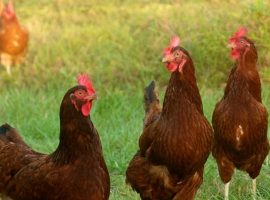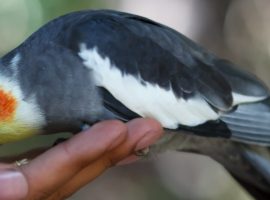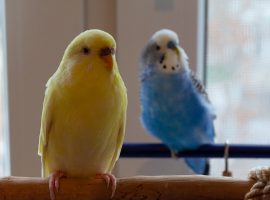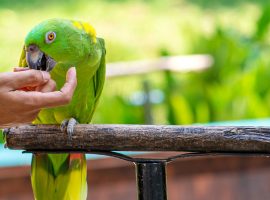Birds can make absolutely lovely, beautiful pets and we treat all types from parrots to finches to chickens and more. Our dedicated team of avian veterinarians caters to each species with the utmost care.
Here, we cover a variety of topics relating to birds, including one of our questions we hear the most: How do I know the sex of my pet bird? We also cover common household materials that can be toxic to your pet bird and so much more.
Check back regularly as we have many new and exciting bird-related blogs to come!
 04/02/2021
04/02/2021 Wing Clipping
Deciding to clip your bird’s wings or not is never an easy decision. It is a divisive issue that will uncover a considerable number of differing opinions. A variety of techniques have been used over...
 28/07/2020
28/07/2020 Reproductive Disease in Backyard Chickens
Many chickens develop reproductive disease over time. We look at the common types of reproductive disease in chickens, the signs to look out for, and some of the available treatment options.
 03/07/2020
03/07/2020 Caring For Your Cockatiel (Weiro)
The cockatiel, or weiro as it is generally known in WA, is a semi-arid bird species that is found in many parts of Australia. Males and females both make great pets, and they’re fairly easy to keep....
 01/06/2020
01/06/2020 Caring For Pet Budgies
Budgerigars (Melopsittacus undulatus), commonly known as budgies, can make wonderful pets. They are generally inquisitive, social birds that are relatively easy to keep.
There are many colour varie...
 01/06/2020
01/06/2020 Behavioural Training For Birds
Behavioural training can be a great way to build and maintain a healthy, trusting relationship with your bird.
This article summarises some of the key concepts involved in behavioural training, as ...
 15/05/2020
15/05/2020 Feather Destructive Behaviour in Birds
Feather destructive behaviour in birds may be a symptom of many different diseases and has no one single cause. Unfortunately, it is also a very common condition encountered in a huge range of species...
